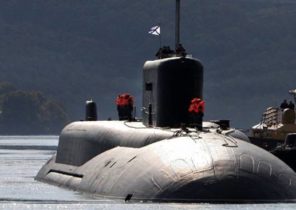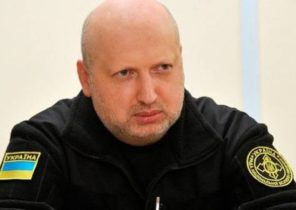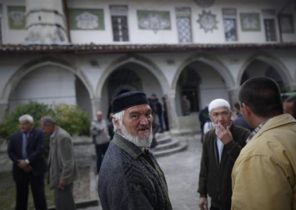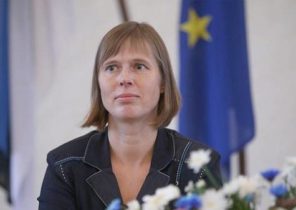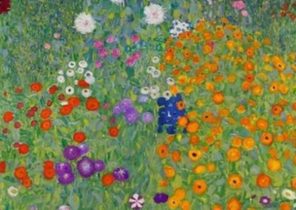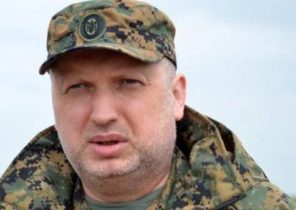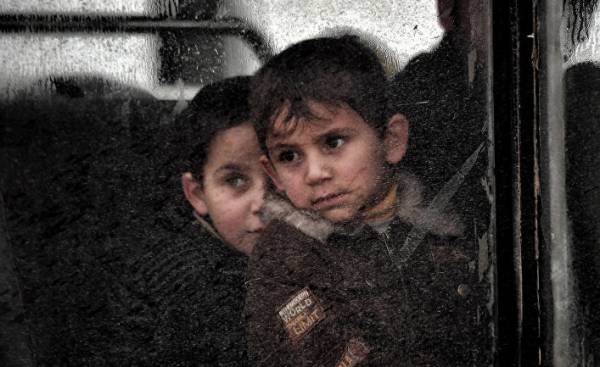
In the al-Muthana is a foul odor. The sweet odor of decaying flesh that accumulates in the air after the battle. A boy plays with dogs, eats the insides of dead militants “Islamic state” (a terrorist organization banned in Russia). The dead bodies scattered among the rubble, quickly decompose and swell. It traces the “night of wrath”. It is expected that the next day will be calm, because order in the city provides a “gold division” — an elite unit of the Iraqi army. But in Mosul, no one knows in advance.
Soldiers with a stick, drives away birds-scavengers, rashlebyvay other dead. “Sometimes we leave them [the bodies] here for a few days, so no one is forgotten, “he says,” Or put them on a stake as a warning. Or just hang on the pillar till there does not remain a skeleton”.
It’s a way to warn the lurking wolves — suicide bombers and spies lurking in the dark corners of the liberated areas.
It is not easy to witness such fights. After posting photos of dying soldiers, came under mortar fire of the terrorists, the Iraqi army has closed the doors to reporters. But the fortune smiled. The press conference where the generals wanted to show off the stars on the uniform and to boast of its success during offensive operations, became the perfect excuse to visit a military base in the village of Bartell, located in the suburbs of Mosul. After we were there for hours and not drank one liter of tea, our chaperone had agreed with one of the Kurdish commanders that we can spend the night together with his group, awaiting developments.
A tense silence. The day starts early. Armored HMMWV American production riding in the desert, among the abandoned and destroyed buildings. We come to the area of al-Muthana, where a few hours ago, rattled fierce fighting. Now here stood a tense silence. The third battalion commander General Abdul-Wahab (Abdulwehab) triumphantly walks the streets, and the locals come out to say Hello. Snipers take aim from the balcony to the side of the hill, where the jihadists retreated with the sunrise.
The silence is broken a single shot into the air. Shooting soldiers says that he saw a drone. We run for cover, while the fighter took aim at the sky, hunting for a propeller in the clouds. In the absence of air, the drones have become one of the most deadly weapons the terrorists operating these aircraft filled with explosives. Under the drone strikes have already killed dozens of fighters of “Golden division”. After a few minutes of intense waiting, we exit the building. The situation seems calm again. Several local hang triumphantly on the roof of the black flag of ISIS left applied to the fleeing terrorists.
The “Golden division” was formed to combat terrorism in 2005. It has been prepared by special forces of the US army and Jordan. While this unit has not had such good training and modern weapons such as now. After the disgraceful capture of Mosul by terrorists in 2014 when the Iraqi military fled in a matter of hours, leaving the weapon the “Islamic state”, the elite troops of the Iraqi army took control of the operation to liberate the city, which began in October last year.
Ambush
The first mistake was separated from the group. One of the black armored vehicles belonging to the Iraqi special forces (ISOF), is sent to patrol the area, and we are invited to join. I sit next to installed on the roof of the DShK, which controls one of the fighters. I think it will be easier to remove. We went, and after 15 minutes heard machine gun fire. The soldier said that shoot back. Got to get back.
— Get inside! nervously he shouts.
Inside the machine suffocating hot. Driver something is discussing with another fighter. They seem to have gone astray. We are alone in the street, not knowing where to go. Suddenly a cry: “ISIS, ISIS!” Through the bars protecting the window of armored vehicles, you can see their heads sticking up over the hill. They move fast. The terrorists have changed the disposition. It’s an ambush.
They get close, start shooting, the car abruptly slows down and stops. Roof-mounted machine gun spits out lead queues, creating in front of the machine the semi-circle of fire to clear the way for us to retreat. About seven shots at the same time. Shells fall in our lap, they are hot, they are Smoking. My legs tremble and I can’t calm down. At some point I ceased to understand, who shoots us or in us. I sit with my mouth open, not to keep from crashing. The glass cracked from the explosions.
— To withstand the armored car?— I ask the Arab photographer with great experience of participation in hostilities.
— Regular gunfire is harmless, but I worry about mortars and RPGs (rocket-propelled grenade launchers). If we stay here, in the end, we get.
It is proposed to leave the car. First, no one dares. Finally, we run in zigzags, turning over the corners of buildings until we reach the place of departure from the “Golden division” at the foot of the mountain.
The battle began
Recharge several machine guns. Tanks there. They are too narrow streets. Someone pulling your grenade to the wall, loads it and runs down the aisle. We want to follow him, but we grabbed the hand: “the Shock wave can burn you.”
A fighter gets on his knees and shoots. Red beam appears in the sky. From another angle of launch. Armored, standing across the street, serves as a shield. The two fighters change with M16 rifles. One charges, the other one shoots, and it all starts again. Deadly combination.
We shoot what is happening on his knees. The bullet flew a few inches from my head and struck the wall. I only heard the whistle, and my face was covered with lime. We run, stumble and shoot. Finally, we find safety on the opposite side of the street. General Abdul-Wahab (Abdulwehab) in dark glasses, who knew about a possible fight comes to me and says smiling: “All right, keep calm!”.
I try to exercise restraint, changing the battery in the camera, but my hands are shaking. It’s hard for me to breathe in a flak jacket. The helmet I already removed. I’m all wet from sweat. To me the soldiers hanging on his chest a grenade. “I have two hearts: the one of flesh and blood, the other of iron — he said, pointing to a grenade. — If I’m surrounded by ISIS, tug the ring. It is better to die than to be captured by these savages. This animals, animals”.
Then we are invited to climb on one of the balconies where the snipers sit. We ask how safe it is. “Safer than here,” says one of the photographers. Top sniper can shoot a rifle Dragunov Russian production, which affects targets at a distance of one kilometer. We are interested to look at the surroundings from the top. We carefully visovivat head, we see huge clouds of smoke billowing on the horizon.
Sniper changes the disposition, and takes aim. After a moment, he lay motionless. He’s not breathing. He’s dead. Around his head spreads a pool of blood. He was killed by the enemy sniper.
His partner, visibly scared, runs away, crouching down. He looks at me wide-eyed. It can’t be saved. It is better to go down.
Back on the battlefield, some soldiers come to us and ask to see pictures taken on the balcony. First, we refuse to think that they want to destroy them to have any pictures of the dead fighters of weakness before the enemy. But they have other intentions: they just want to know whether they were familiar with the dead sniper.
Comes to the aid of aircraft to apply precision strikes, it is repeated three times. “It’s an American aircraft, perhaps, like the Rockwell B-1 Lancer, they are as deadly as Russian fighter Sukhoi”, — said one of the members of the “Golden division”. A few meters away from us white-skinned and white-haired American officer in black clothes and with glasses writes something and takes on the camera and the GoPro camera attached to the helmet. He is accompanied by a translator. He had no weapons, only writes the report and looks at the map. Sometimes talking on the radio. He’s not avoiding our cameras and even offering us a patch to seal wounds on the head, which we got caught in the crossfire.
The bridge was destroyed. Frightened people fleeing from war. They flee EN masse for almost nothing. Children they are like sacks of potatoes. We have accompanied them. Kilometer of bad road, and we have a real Dantean scene: among the cross-fire, thousands of families are trying to go with divided bridge, which exits the city. People pray to some random shell landed in their children.
Bullets whistle around us. A man pushes a wheelchair, in which sits an elderly woman and mutters something through gritted teeth. Steep, abruptly descending, the descent complicates the task. Luck left the old woman, and she sits among the chaos, looking into the abyss. She does not seem frightened, but rather resigned to his fate. People run by, carefully avoiding the wheelchair, but assistance is not offered.
Some are hiding under the bridge, someone re-found, lost in the confusion. Some woman, crying, singing something like Shiite prayers. Her singing is like the bloody rites performed on the day of Ashura (the tenth day of the Islamic new year Hijri) in the city of Karbala (where the grandson of the prophet Muhammad Imam Hussein was martyred in 680 on the Gregorian calendar, where according to legend, his body is buried), when local residents put themselves to the blows of the daggers. There are brave souls who dared to cross the destroyed bridge, which was blown up by ISIL terrorists fleeing to the Eastern part of Mosul, separated from the West by the Tigris river.
In order not to fall under attack, the father puts their children in a row and they on knees crawl along the tilted wall of the bridge, drowning in the liquid mud, which, together with the other part of the concrete structure forms an inverted triangle. One child crying, another girl of about ten years of terror can’t speak. She looks at the world through a mask the color of bloody meat, which seems attached to the skin of her face, perhaps scorched by mortar shrapnel.
Freeing the Eastern part of Mosul controlled by ISIL in 2014, the Iraqi army is concentrating all his strength on trying to clear the terrorists the Western part of the city inch by inch, where they continue to be held hostage thousands of civilians. We are talking about the most difficult area — the Old Town, where fights unfold on the streets. It is a war with the use of booby traps, guerrilla units and trenches.
The traces of blood. We leave the river and go for the wounded and dead. A trail of blood extends to the hospital Gokhale. In fact, it is a building consisting of four cracked walls, with several mattresses on the floor. Sanitary condition of premises is poor. When we enter, the person injured from the breaking of the mortar shell hides her face.
Staff is almost there. This was a field hospital where they treat gangrene, do blood transfusions, suture wounds and amputated limbs. Painkillers and tools for such operations is not always available. Is this butcher shop, the slaughterhouse where will take particularly seriously. Those who have a chance to save, go to the emergency room in the village of Bartell. “We do not see the enemy or civilian. We are still at the first checkpoint they identificeret and distribute, but we are all treated the same,” says head of the hospital.
The conversation is interrupted by the arrival of another ambulance. Wounded carried out and the procedure starts. The complex apartments (Viyan) puts a bandage on his head, bandaging the wound on his leg, glued up holes on the breast, formed as a result of shrapnel. Sounds a piercing siren. Standing next to the assistant with the serum in hand and takes the bandages. The floor covered with blood, urine and other excreta of patients. Wounded almost not moving, only occasionally raises cramped hand, as if reflexively. He is in a semi-conscious state, his eyes closed. The doctor inserts the tube under his throat, where the blood, saliva and pus, and it all merges, bubble in a special tank.
The ambulance stops in front of the refugee camp Khazer. Several of the Kurdish soldiers opened the door of the car and check our documents to make sure that we do not bring terrorists and weapons. Permit takes about 15 minutes, and the barrier rises again. Door opens and we return the documents. We continue the path. Before you start, complex apartments (Viyan) raises thumb: he managed to stabilize the patient. The head wound that troubled him the most, stopped bleeding. Pulse uniform. He’ll survive.
In a hospital in Erbil, the wounded are divided into groups, although they summarize one thing: they are all victims of this war. Most of them women and children.
For example, Nura (Nura) weakly smiles at our arrival. She is five years old. Her damaged and bandaged foot, which protrude from the spokes. When her mother picks up the blanket, she looks away. The woman shows us x-rays, which clearly can distinguish metal objects from the bones. She believes that her daughter will walk again.
In the other room are children with amputated limbs. One boy lost both legs, his several brothers were killed. He’s hiding under the blue sheets and the welcome screen is waving to us in the cast. According to his father, the baby is not in also several fingers.
Next to him is 12-year-old Amir (Amir), who barely moves. He lost his right leg below the knee. He had scars on his chest and arm after surgery to remove shrapnel. In the orange pants with the sign of the football club “Barcelona”. His skin became a dark purple shade, sometimes turning into yellow. It may be the result of medication. “How can I smile if I’ll never be able to play football!”, — he exclaims.
We told him that he can, that in Spain there are whole teams of people with disabilities who play football. Amir looks away. Iraq is not a country where you can have something to dream of.
His father Luqman (Luqman) said: “We are still in the hospital, because here we at least give the medication. If we go back to Mosul, we have nothing. We even failed to secure a denture. Our homes become graves of our children.”
According to Amnesty International, in addition to the terrible wounds on the body, internally displaced minor get a deep psychological trauma, having witnessed extreme violence. Few have access to psychological help that they really need. According to the Iraqi Body Count of the company, more than 16 thousand civilians in Iraq have died a violent death in 2016, leading the number of deaths in Iraq after 2015 (17,578 thousand dead) and 2014 (20,218 thousand).
At a distance of 90 kilometers from there, in the al-Muthana, the fighting continues. Three rider-suicide bomber exploded at the barriers. But the jihadists retreat. General Abdul-Wahab (Abdulwehab) conducts a review, he slaps the shoulder of the soldier, lighting a cigar, given to him by the “American consultant”. He picks up the floor had fallen patch and attaches it on his chest. It depicts the crest of the black eagle, and spread out their claws, and wide wings, outlining the victim.
He came over to me again. “See, I told you that we will win,” he whispers in my ear.
Another day with the “Golden division”.
